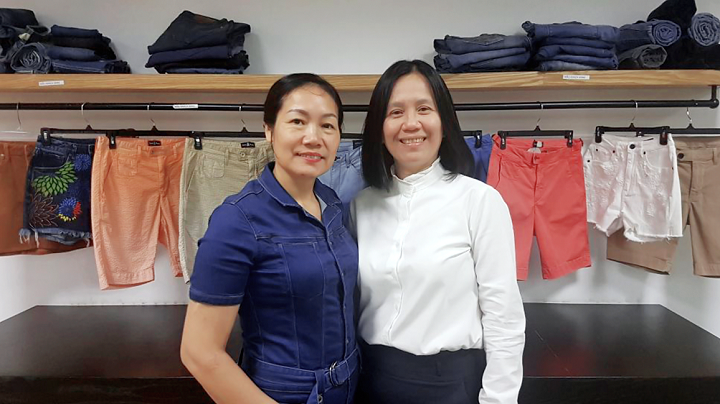Swedish furniture giant Ikea is further diversifying its workforce by hiring more people with disabilities, people in rural areas and people from marginalised groups. The company’s latest employment efforts are supported by three new partners in Southeast Asia: Classical Handmade Products, an export manufacturing company in Bangladesh, Saitex in Vietnam, the world’s most sustainable large-scale denim producer, and Spun, a sustainable textiles manufacturer in India. All three social business
ss partners are located in areas with marginalised groups, and two have a special focus on integrating persons with disabilities in manufacturing.
The partnerships will support large-scale production of products and collections using new materials and techniques, and allow Ikea to broaden its range of products produced in a sustainable industrial environment.
“To join hands with three new large-scale partners, creates a new possibility for Ikea to offer products made of natural fibres and waste material. These partners are also already well-established manufacturers with the ambition to offer jobs to marginalised groups and people in vulnerable communities in the areas where they operate,” Lena Sörmon, business leader social entrepreneurship at Ikea, said in a statement.
The first collection, Vårdande, will launch in June 2022.
‘Every drop counts’
Saitex, is known worldwide for its inclusive hiring approach and sustainable business operations. Its goal is to have people with disabilities occupy 20 per cent of the roles involved in production for Ikea by 2025.
“A small enterprise cannot change the world, but you can put your drop into the ocean. And every drop counts,” Sanjeev Bahl, founder and CEO of Saitex, said.
“Together we can create a future formula for success that could be replicated in other factories. Imagine what a huge, massive dent we together would create on this matter.”
Classical Handmade Products (CHP) provides job opportunities in communities where people struggle to find employment. It is focused on hiring women in rural villages and persons with disabilities, and means that these people can find work but still continue living at home with their families.
Spun works with women who produce sustainably produced textile products. They offer educational programs, as well as environmental and health initiatives to help empower communities.
Ikea’s partnership with social entrepreneurs was first established in 2012, and last financial year, nearly 50 products made in partnership with social entrepreneurs were sold in 54 markets.
“We want to be a force for positive change in society and make a long-lasting impact, locally and globally,” Christina Niemelä Ström, sustainability manager at Ikea Supply, said.
“By expanding the partnerships with large-scale social businesses, we reach people furthest away from the labour market and at the same time we can inspire other brands and suppliers.”
Raising the bar
The move is the latest in a series of initiatives from Ikea to further diversify its workforce and support those in marginalised groups.
In October 2020, Ikea launched the Skills for Employment Program in partnership with Community Corporate to help refugees overcome key barriers to employment. The program introduces participants to the workplace through an eight-week paid work placement at Ikea stores.
Karen Gately, an HR specialist and founder of Corporate Dojo, says employees and job seekers are demanding that employers do more for society.
“People want to work with organisations that take their responsibilities to the planet, to community, seriously, [it’s] not just [about their] responsibilities, but also just generosity of spirit,” Gately told Inside Retail.
“More and more people are going to choose those kinds of employers as a preference, they’re more likely to feel that they are part of a business that is purposeful and aligned to their values and therefore stay.”
Gately says there’s a growing focus placed on diversity, which includes providing job opportunities for minority groups. But she says it’s important that inclusive hiring practises are sincere and not simply a marketing exercise.
“[Companies need to] back it up with numbers, actually hiring people and creating those opportunities for minority groups. Walking the talk, doing the doing, that’s what strengthens people’s trust in your brand,” she said.
“There is progress, but there’s a long, long way to go.”
She warns businesses to be aware of uncconcious bias and discriminatory decision-making when it comes to assessing a person’s ability to do a job. She believes education and accountability is key in overcoming these biases.
“Ask the question, ‘Is that a truth or is that an assumption?’ The more people that do this, the more opportunities are created, but also the more it puts pressure on other employers really just to lift the standard up and make sure that people are treated fairly,” she said.

